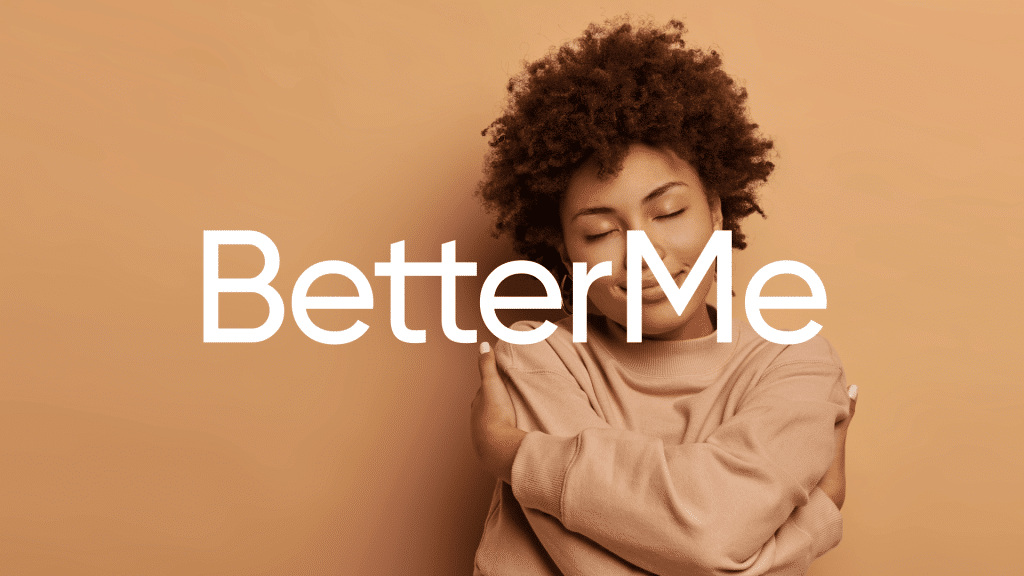Seeing those strands stuck in your hairbrush could be alarming. While it is normal to shed hair daily, you should take remedial measures when hair fall seems extreme. Did you know that people may shed around 50 to 100 strands daily as part of a healthy body renewal? You’d know when the hair fall isn’t normal. For instance, you find strands stuck on your clothes, an unusually large amount on your pillow cover, or while cleaning you might notice more hair across the room. These are all cautionary signs to begin taking some preventive measures. Of all the things that people use to deal with this problem, hair supplements are among the most popular. Vitamin D supplements are said to be the natural remedy for reducing hair fall. Studies have even suggested that serum Vitamin D levels are inversely associated with some types of hair loss (1). When using Vitamin D for hair growth, it is imperative to consult a healthcare professional. Ask them for the required dosage and how to watch for the side effects. This article has highlighted how Vitamin D helps hair growth and its importance. Let’s begin!
Is Vitamin D Good For Hair Growth?
Vitamin D belongs to a class of fat-soluble vitamins that play an important role in our bodies. Most people receive Vitamin D from the two common forms. These include:
Vitamin D2
This form can be sourced from plant-based foods like mushrooms, fortified fruits, leafy greens, and some dietary medications.
Vitamin D3
This is a common form of Vitamin D that can be consumed orally or from animal-based food sources, such as cheese, milk, egg yolk, and liver. This is also a form of Vitamin D that our bodies produce when sunlight converts cholesterol into Vitamin D (2).
Vitamin D has many health benefits, including promoting healthy, long hair. Recent findings suggest that vitamin D3 plays a critical role in hair growth, specifically in the anagen phase, through its involvement in various signaling pathways within hair follicles.
According to a study from the Journal of Cosmetic Dermatology, people with these alopecia conditions are more likely to have low Vitamin D levels (1):
- Telogen effluvium: When the body goes through severe stress or changes, hair may temporarily become thinner, but it should return to normal.
- Androgenetic alopecia (aka male-pattern baldness): When hair loss is caused by genes resulting in permanent baldness.
- Alopecia areata (aka patchy baldness): This is a disease in which the immune system attacks hair follicles and causes sudden hair loss in patches.
- Trichotillomania: A disorder that causes people to have strong, irresistible urges to pull out hair from their scalp or other parts of their body, such as eyebrows and eyelashes.
Besides helping in these conditions, Vitamin D can also benefit our biological system. The positive effects of Vitamin D on our health are that it:
- Helps the body absorb calcium, which makes bones strong and dense.
- May assist in reducing body fat, potentially helping to control weight gain.
- Makes the immune system stronger, which reduces the risk of getting sick and having autoimmune diseases.
- Encourages growth and repair of skin cells for more youthful-looking skin.
- Protects against harmful free radicals that could damage skin and hair.
- Helps create new hair follicles, potentially leading to fuller and thicker hair.
- Has properties that prevent inflammation, potentially protecting scalp hair and follicles from damage.
Given that 41% of US adults have insufficient Vitamin D and about 29% are deficient in the sunshine vitamin, a huge chunk of the population could reap the rewards when consuming Vitamin D for hair loss (3).
Read More: Discover 6 Impressive Vitamin B6 Benefits For Skin
How Much Vitamin D For Hair Growth?
According to the National Institute of Health, the ideal Vitamin D intake for adults is around 600 to 800 IU or 15-20 micrograms. Studies have also revealed that hair loss patients have been administered 1000 IU of Vitamin D to improve their serum levels. This amount is considered safe and adequate for bone health and healthy metabolism.
You should get as much information as possible when using Vitamin D for hair growth and thickness. For instance, too much Vitamin D absorption could lead to toxicity (4). In rare cases, hypercalcemia is possible – it is an excess calcium buildup in the blood. This could lead to symptoms like vomiting, headaches, and nausea. Take note and don’t jump on supplements that are being heavily advertised. Instead, consult your physician for the right dosage for your physical health.
Does Vitamin D Help Hair Growth?
The key to strong hair is in the follicles. When hair follicles are damaged or inactive, this may cause the growth of new hair to stop, and you may start noticing pattern baldness. Studies have shown that Vitamin D, which binds to skin receptors, helps promote healthy hair growth by supporting follicles. When there is not enough Vitamin D, hair loss can occur. In a 2014 study published in Molecular Endocrinology, mice regrew their hair after receiving vitamin D receptors for two weeks. Other studies have also found a link between hair loss and Vitamin D (5).
Not having enough vitamin D in the body has been associated with alopecia (5).
This problem is where you get bald patches on your head as well as other body parts. It can happen to both men and women. A study showed that women between 18 and 45 who had hair loss problems also had lower body Vitamin D levels than those without hair loss (6).
Although medical science hasn’t progressed to the point where it can cure baldness, it has been established that healthy Vitamin D levels might promote hair strength and reduce the possibility of more hair loss.
Some reasons why people may have low levels of Vitamin D include spending too much time indoors, living in certain climates, and not consuming enough foods that are rich in this nutrient.
With this in mind, make sure that you complement any supplements with enriched nutrition. Eating a balanced diet containing important nutrients like Vitamin D can help promote hair growth and improve overall health and well-being. This can be helpful in addition to hair restoration treatments or as a standalone healthy lifestyle choice.
BetterMe app is a foolproof way to go from zero to a weight loss hero in a safe and sustainable way! What are you waiting for? Start transforming your body now!
How Much Vitamin D For Hair Loss?
Studies show that if someone doesn’t have enough Vitamin D, the best way to treat it is by taking Vitamin D supplements (7). These supplements should be taken with meals that have healthy fats because the fat helps the body absorb Vitamin D.
Some excellent sources of dietary fat include:
- Chia seeds
- Avocado
- Eggs
- Olive oil
- Nuts
- Fish, including sardines, salmon, and trout
If you are wondering how to consume Vitamin D for hair loss, you should rely on authentic information from your physician. They will recommend you a supplement according to your physical health.
Different Vitamin D supplements can be taken daily, weekly, or monthly. When someone is treating low Vitamin D levels, their doctor may do a blood test every few months to check if their levels are increasing.
The Endocrine Society suggests that adults between 19 and 55 should take 600 IU of Vitamin D daily (10). “IU” stands for the international unit, which is a way to measure the strength of a vitamin or supplement instead of its weight.
The Endocrine Society advises adults aged 55 years or older should take 600 to 800 IU of Vitamin D daily. Children should take between 400 and 600 IU of Vitamin D daily (8).
They must be treated when a medical condition causes a Vitamin D deficiency. Crohn’s and celiac disease can stop the body from absorbing Vitamin D from food. If a medication is causing the deficiency, someone may need to talk to their doctor about alternatives.
For mild deficiencies, just spending more time in the sun can help. However, wearing sunscreen and not staying in the sun too long is important to avoid skin damage.
The following are some sources of Vitamin D that you can use while trying to improve Vitamin D levels for hair growth:
Exposure To Sun
Most people who go outdoors a lot get their Vitamin D through the sun. While those who don’t spend too much time outdoors or who live in certain climates cannot enjoy this perk. If you are trying to get an optimal vitamin D level for hair growth, take a small tour of your neighborhood during the daytime.
It’s important to protect our skin from the sun and get enough Vitamin D. If you can’t be in the sun for too long, you can spend extra time near a window where the sunlight comes through. This can help you get some Vitamin D.
Vitamin D Supplements
Multivitamins have around 400 IU of Vitamin D, which is the regular daily allowance of this nutrient. It is essential to support supplements with diet. Your doctor may also get you some bloodwork to determine your desired Vitamin D level. If the levels are too low, they will prescribe a higher dosage.
Babies who are breastfed get their nutrients from their mother’s milk. If a breastfeeding mother doesn’t have enough Vitamin D in her diet, her baby may need to take a Vitamin D supplement (9).
A Diet Enriched With Vitamin D
We cannot let diet out of the equation when trying to improve our Vitamin D levels. Nature has blessed us with many foods that are rich in this nutrient. Animal fats, mackerel, salmon, and fish liver oils are great sources. It may surprise you that one tablespoon of cod liver oil provides 170% of your daily vitamin D value (7).
Some other food products fortified with Vitamin D include milk, cereals, and orange juice. Vegetarian and vegan diets have a low Vitamin D content, so supplements may be needed to deal with Vitamin D for hair growth.
Read More: Uncovering The Truth About Vitamin B5 Benefits For Skin
What Are The Reasons For Vitamin D Deficiency?
There are many reasons why a person may have a Vitamin D deficiency that’s causing their hair health. Some of these reasons are:
- Poor diet and lack of nutrition
- Not getting enough sunlight
- Skin not being able to produce or absorb enough Vitamin D
- Some medical conditions, such as celiac disease, Crohn’s disease, and kidney disease, can interfere with the absorption of Vitamin D
- Vitamin D is stored in fat cells, so people with a higher body mass index (BMI) may have lower levels of Vitamin D
- People with darker skin have more melanin, which can affect Vitamin D production
Vitamin D deficiency isn’t the only reason for hair loss or thinning. It can also occur due to other nutritional deficiencies or other reasons entirely. The following are some nutrients that are also needed to support healthy hair:
- Iron deficiency can cause hair loss due to a lack of oxygen and nutrients in the roots. Iron can improve blood circulation and provide nutrients for thicker hair growth.
- Biotin deficiency can lead to thinning hair. Biotin can stimulate keratin protein production and boost hair growth in the follicles.
- Zinc is involved in the function of the hair follicle.
- Vitamin B12 is necessary for red blood cell formation and DNA synthesis, both of which might affect hair growth and follicle function.
- Vitamin E has antioxidant properties that combat oxidative stress and free radicals that harm hair follicles. People with androgenetic alopecia have also shown improvement with increased vitamin E levels.
How Long Does It Take To Experience Hair Loss?
The onset of hair loss following a stressful event can take weeks to months. In cases where Trichotillomania contributes, the hair may not initially fall out but could eventually do so. The hair loss may become irreversible if left untreated and not provided with growth boosters recommended by a dermatologist in the early stages (11).
Intense sweat sessions, working weight loss tips, lip-smacking recipes come in one package with the BetterMe app. And all of it is at your fingertips, start transforming your life now!
What Are The Symptoms Of Vitamin D Deficiency?
Vitamin D deficiency can cause many health problems. Factors like lack of sun exposure and an imbalanced diet could lead to Vitamin D deficiency. Vitamin D deficiency usually doesn’t cause any symptoms. Still, if you experience tiredness, bone pain, muscle weakness, or mood changes, this could be a sign that something is not right in your body.
Some symptoms of Vitamin D deficiency include:
- Difficulty sleeping
- Pain or discomfort in bones
- Feeling sad or depressed
- Thinning or falling out of hair
- Weakness in muscles
- Not feeling hungry
- Easily catching illnesses
- Skin appearing pale
You should consult your primary healthcare provider when you notice either of these symptoms. They will ask for bloodwork to check for any Vitamin D deficiency.
Is Vitamin D Important For Hair Growth?
The primary role of Vitamin D is to help the body absorb phosphorus and calcium from food. Both of these minerals play an essential role in maintaining bone health. People who don’t get enough Vitamin D may suffer from weak and brittle bones, besides hair fall.
We have established that Vitamin D may be integral when dealing with extreme hair fall or conditions like alopecia. Vitamin D plays a role in the creation of new hair follicles, which are essential for healthy hair (8).
Not only this, but Vitamin D is also important for the immune system to work well. A 2011 research found that Vitamin D deficiency was associated with autoimmune issues and the risk of developing infections (9).
Are Vitamin D Supplements Safe?
For most people, yes!
Vitamin D supplements are safe when consumed in the recommended doses. The tolerable upper intake level for adults is 4,000 IU per day.
Some people may face side effects like dry mouth and constipation. However, when taken a more-than-required dose, side effects could be vomiting, nausea, kidney stones, and excessive thirst (10). Always consult a healthcare provider before starting supplements.
The Bottom Line
Hair loss isn’t always due to vitamin deficiencies. This requires a proper medical examination to determine the reason behind excessive hair fall. Once diagnosed and advised of medications, you should comply with the doctor’s recommendations. Vitamin D supplements may bring better outcomes when accompanied by a balanced diet and lifestyle changes.
Before you take Vitamin D for hair growth, analyze your diet and check with a healthcare provider. A wholesome approach to dealing with hair loss will definitely bring positive outcomes!
DISCLAIMER:
This article is intended for general informational purposes only and does not address individual circumstances. It is not a substitute for professional advice or help and should not be relied on to make decisions of any kind. Any action you take upon the information presented in this article is strictly at your own risk and responsibility!
SOURCES:
- Role of vitamin D in hair loss: A short review (2021, pubmed.ncbi.nlm.nih.gov)
- Vitamin D and your health: Breaking old rules, raising new hopes (2021, health.harvard.edu)
- Vitamin D deficiency and insufficiency among US adults: prevalence, predictors and clinical implications (2018, cambridge.org)
- What is vitamin D toxicity? Should I be worried about taking supplements? (n.d., mayoclinic.org)
- Prevalence of Low Serum Vitamin D Levels in Patients Presenting With Androgenetic Alopecia: A Review (2021, ncbi.nlm.nih.gov)
- Serum Vitamin D3 Level in Patients with Female Pattern Hair Loss (2016, ncbi.nlm.nih.gov)
- Vitamin D (n.d., ods.od.nih.gov)
- Vitamin D and Calcium (n.d., hopkinsmedicine.org)
- Vitamin D (n.d., cdc.gov)
- Vitamin D and the Immune System (2012, ncbi.nlm.nih.gov)
- Hypercalcemia (n.d., mayoclinic.org)
- Diagnosis, Evaluation, and Management of Trichotillomania (2015, ncbi.nlm.nih.gov)

















